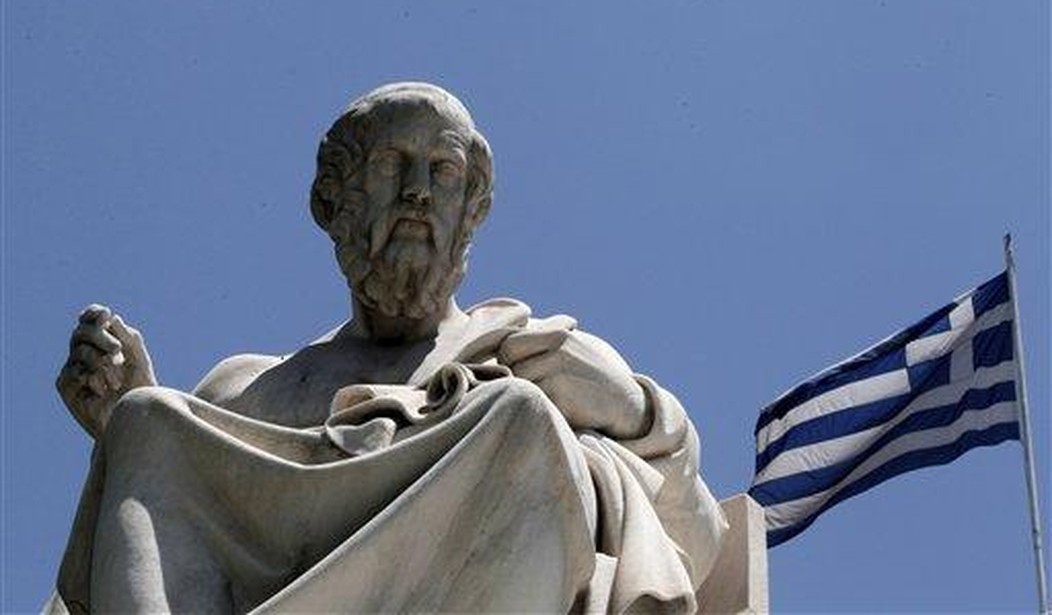"False words are not only evil in themselves, but they infect the soul with evil." - Plato
Plato, the eminent philosopher of ancient Greece, remains a beacon of wisdom that traverses the epochs of human existence. His insights into human behavior and society resound with a timeless resonance, slicing through the veils of deceit.
At the heart of Plato's convictions, like his student Aristotle, lies an unwavering allegiance to truth and knowledge – principles that bear an uncanny relevance in the labyrinthine corridors of our contemporary world.
Plato's acute observations on politicians' machinations, often driven by self-serving motives and insatiable power, resonate eerily in our modern political landscape.
The art of bending reality to suit one's narrative, a tactic not alien to the present, finds its parallel in the infamous utterances like, "I did not have sexual relations with that woman…"
Such instances vividly illustrate a recurring pattern that seems to have withstood the ravages of time. To Plato, these politicians emerged as paragons of self-deception, caught in a web of their own making.
However, Plato's discerning gaze did not solely rest upon politicians. He discerned an intriguing symmetry between these wielders of power and thespians, both masters of language manipulation to gather influence.
As politicians swayed public opinion to advance their agendas, actors blurred the demarcation between reality and theatrical fiction.
The realm of the stage, not unlike the captivating allure of Hollywood, became a domain where emotions and personas eclipsed the pursuit of authenticity.
Plato's scrutiny extended even to prostitutes, a group seemingly disparate from the aforementioned spheres. In his view, these individuals transformed the tapestry of human connection into a canvas of calculated transactions.
Yet, their narratives intertwined intricately with the records of politicians and actors. The common thread was their skillful adoption of masks – the art of 'Hypocrito' as Plato termed it – concealing their genuine selves beneath layers of artifice.
Recommended
Central to Plato's philosophy was a resolute celebration of virtues like authenticity and integrity. He believed that these virtues should form the bedrock of any society.
The politician, actor, and prostitute, in Plato's eyes, strayed from the path of authenticity, assuming roles that sought rewards rather than self-discovery.
But Plato's concerns were not limited to the individuals themselves. His critique would encompass the broader ripple effect of art, culture, and individual actions on society.
These elements, he argued, wielded immense power in shaping societal values and conduct. Yet, they also harbored the potential to divert society's course when authenticity and empathy were obscured.
In the current digital age, where technology often serves as a mesmerizing screen that filters reality, Plato's allegory of the cave acquires an unexpected relevance.
People, ensnared in their echo chambers, remain oblivious to the grand tapestry of political manipulation. Plato, a visionary of his era, wished a society rousing from this somnolence to glimpse the authentic truths in the light beyond the shadows.
While Plato's critique may emanate as stern admonishment, it came from profound concerns about the ethical roles of governance in nurturing a morally aware society.
His principles reverberate today, encapsulating an undying ethic anchored in truth and virtue – a moral compass that demands unwavering respect.
Plato's skepticism towards actors, prostitutes, and politicians wasn't merely a disapproving gesture. It stemmed from a deep-seated aspiration for a harmonious and principled polis.
Although his ideals may seem utopian, they mirror his meticulous contemplation of what constitutes a meaningful existence.
Plato's astute observations in the grand theater of ancient Greece foreshadowed the echoes of modern times. Individuals akin to today's political figures, such as the Clintons and Bidens, deftly manipulated their roles to beguile the masses.
Falsehoods have continued through the ages, perpetually cautioning against the treacherous aspects of human nature, veiled under the banner of the 'greater good.'
What Plato could not foresee was the proliferation of this charade through the medium of mass media – an insidious contagion capable of distorting and potentially corroding the very assumptions of our society.
As we navigate these complexities, Plato's insights illuminate our path, encouraging us to dismantle the layers of deception and demand truth and authenticity.

























Join the conversation as a VIP Member